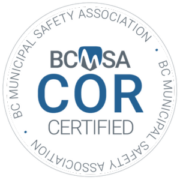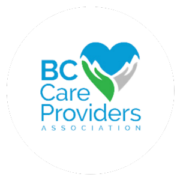There is no vaccine or medication that can prevent norovirus infection. However, these tips can help prevent the virus from spreading:
Wash your hands, especially after using the toilet, changing diapers or before eating or preparing food. Proper hand washing requires running water, soap and cleansing of the hands for about 20 seconds. For more information see HealthLinkBC File #85 Hand Washing for Parents and Children.
Disinfect bathrooms used by sick people with a dilute bleach solution (1 part household bleach to 9 parts water).
Throw out any food that has been handled by a person with the virus or exposed while a person vomited.
Wash dishes and utensils with hot water and detergent or in a dishwasher.
Wash laundry soiled with vomit or diarrhea in a washing machine using detergent.
People who are ill and work as food handlers or care providers should stay away from work while they are sick and for 2 days after they are better. Even when diarrhea and vomiting have stopped, the virus can still be in the stool (bowel movement) for as long as 2 weeks. Be sure to wash your hands carefully and often.
If someone is ill with norovirus, discourage visitors to the home. It is best to wait for at least 2 days after everyone is better and the house is cleaned and disinfected.
When a family member is sick with vomiting or diarrhea, it is a good idea for that person to stay in a separate room and not be around others, as the virus spreads easily. Everyone in the family should wash their hands often with soap and water. Use different towels or paper towels for drying hands to help stop the spread to other people.
Do not eat raw or undercooked shellfish. Cooking will destroy the virus.





Family Day – Feb 18th
/in Family and FriendsYou’re Invited: February Family Support Group
/in Family and FriendsWould you like a 2019 calendar?
/in Family and FriendsChinese New Year Dancers – Feb 15th
/in Family and FriendsConcert in Care – Feb 5th
/in Family and FriendsNorovirus – Facts and Prevention
/in Infection ControlDownload HealthLinkBC – Norovirus PDF
What is Norovirus?
Norovirus is a group of viruses that cause acute gastroenteritis, an infection of the digestive tract (stomach and intestine). Norovirus outbreaks occur in B.C. communities every year. Outbreaks occur year round but are more common in the winter months. Outbreaks of illness are common in nursing homes, daycare centres, schools, children’s camps and on cruise ships.
What are the symptoms?
Within 1 to 2 days of being exposed to a norovirus you may have the following symptoms: an upset stomach, vomiting, and/or diarrhea. Other symptoms include nausea, cramping, chills and fever. The illness usually begins suddenly and lasts for 1 to 3 days. Complications may occur if you lose too much fluid from vomiting and diarrhea and do not drink enough fluids. This is called dehydration. Symptoms of dehydration include: decrease in urination, a dry mouth and throat, and dizziness. This is more likely to occur with babies, the elderly and people with weakened immune systems. Severe illness is very rare and hospital care is usually not required.
How does the virus spread?
Norovirus can be found in the vomit and diarrhea of people who are sick. When someone vomits, people nearby may become infected by swallowing tiny droplets from the air. The virus can also be spread on surfaces like countertops or sink taps. The virus can survive for a long time on these surfaces if they are not properly cleaned. You can become ill when you touch these surfaces and then place your hands or fingers in your mouth. The virus can be spread if an infected person does not wash their hands or if someone with this illness handles food, water or ice. Some foods can be contaminated with the virus at their source. For example, shellfish may be contaminated by sewage water before they are harvested.
Is there a treatment?
Medications are not usually used to treat norovirus. People infected with norovirus usually get better within a few days. Antibiotics should not be taken for norovirus. Antibiotics only work to fight bacteria and not viruses. It is important that you drink enough clear fluids, such as water, so you do not get dehydrated. You could also drink other fluids such as juices, clear soups, or oral rehydration fluids for vomiting or diarrhea. See a health care provider if diarrhea or vomiting lasts more than 2 or 3 days, or if dehydration is a concern.
How can you prevent infection with the virus?
There is no vaccine or medication that can prevent norovirus infection. However, these tips can help prevent the virus from spreading:
Wash your hands, especially after using the toilet, changing diapers or before eating or preparing food. Proper hand washing requires running water, soap and cleansing of the hands for about 20 seconds. For more information see HealthLinkBC File #85 Hand Washing for Parents and Children.
Disinfect bathrooms used by sick people with a dilute bleach solution (1 part household bleach to 9 parts water).
Throw out any food that has been handled by a person with the virus or exposed while a person vomited.
Wash dishes and utensils with hot water and detergent or in a dishwasher.
Wash laundry soiled with vomit or diarrhea in a washing machine using detergent.
People who are ill and work as food handlers or care providers should stay away from work while they are sick and for 2 days after they are better. Even when diarrhea and vomiting have stopped, the virus can still be in the stool (bowel movement) for as long as 2 weeks. Be sure to wash your hands carefully and often.
If someone is ill with norovirus, discourage visitors to the home. It is best to wait for at least 2 days after everyone is better and the house is cleaned and disinfected.
When a family member is sick with vomiting or diarrhea, it is a good idea for that person to stay in a separate room and not be around others, as the virus spreads easily. Everyone in the family should wash their hands often with soap and water. Use different towels or paper towels for drying hands to help stop the spread to other people.
Do not eat raw or undercooked shellfish. Cooking will destroy the virus.
How can I reduce the risk of getting infected from cleaning up vomit or diarrhea?
If you are cleaning up vomit or diarrhea, you can reduce the risk of getting infected by doing the following:
Wear disposable gloves. Reusable rubber gloves may be used, but they should be washed after use.
Use paper towels to soak up excess liquid and put the paper towels and any solid matter directly into a plastic garbage bag.
Clean the soiled area with soap and hot water. The same cleaning cloth or sponge should not be used to clean other areas of the house as this may spread the virus.
Disinfect the area that has been washed with a freshly made bleach solution. Make a solution of bleach by mixing 1 part bleach to 9 parts of water. Household cleaners other than bleach do not work as well for noroviruses.
Put all cleaning cloths and disposable gloves into a plastic garbage bag and throw out.
Wash your hands well using soap and water for at least 20 seconds.
For more HealthLinkBC File topics, visit www.HealthLinkBC.ca/healthfiles or your local public health unit.
Click on the www.HealthLinkBC.ca or call 8-1-1 for non-emergency health information and services in B.C.
For deaf and hearing-impaired assistance, call 7-1-1 in B.C.
Translation services are available in more than 130 languages on request.
Gillian’s Tote Bags @ Fireside
/in Family and FriendsBook Review – Prime Time by Jane Fonda
/in Articles, authors, seniors-interestWe’ve started a series of book reviews – all about books on aging! This month, Barrie McMaster reviews Jane Fonda’s latest book. Read the full review here…
Scottish Dancers – Jan 26th
/in Family and FriendsFamily Council – Home & Hospital
/in Family and FriendsYou are invited to join us!
Family and Friends (Family Council) Connections
Thursday, January 17, 2019
*New Time 3:00 – 4:00pm
*New Location Hospital Conference Room
(Front Entrance of Menno Hospital near Fireside Café – little hallway to your left just past Receptionist – Leslie’s desk)
Coffee, Tea, Refreshments are provided
On January 17, 2019 Family and Friends (Family Council) will have Dale Carlisle (Rehab Therapist) come to discuss the SCOPE project. SCOPE is a program designed as part of a research project from the University of Alberta called TREK. SCOPE stands for: Safer Care of Older People in residential Environments. Front line care staff and leadership members from various facilities are selected and guided through a year long process that educates and supports them as they develop and implement positive changes to benefit residents.
Mobility and Falls Prevention is the focus of Menno Hospital’s TREK/SCOPE Research Project and is being carried out on West 2 by an interdisciplinary team made up of HCA (care aide) Recreation, Rehab and Nursing leaders. The team is called the Menno Mobility Squad (M&M’s) and throughout the next year they will be working to encourage residents to lead a more active lifestyle in order to maintain their strength as a means to reducing or preventing falls.
Their aim is: By April 2019, to implement an approach to an active lifestyle for residents that reduces falls by 50% . Their motto is: “Mobility within your ability”.
The project is currently focused on W2 Hospital during this development phase but it is anticipated that the positive results from it will be implemented through the Menno Campus going forward.
Trish Giesbrecht (Manger of Care and QI Lead) will also be joining the group to discuss her role and how she can be a support for family members.